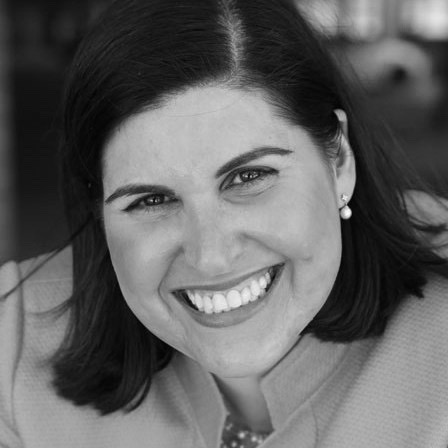
As anyone in Los Angeles knows, the 405 Freeway often comes to a standstill. But for Mindy Alper, who does not like crowds or excessive noise, it is heaven. “Just sit there not moving … completely safe to be with my thoughts.”
Through powerful cinematography and music, as well as animations of Alper’s drawings, director Frank Stiefel’s 2016 Oscar-winning short documentary, “Heaven Is a Traffic Jam on the 405,” shows viewers what it is like to have depression and mental illness.
However, during a post-discussion screening hosted by Jewish LA Special Needs Trust & Services (JLA Trust), Stiefel was quick to say this is not a film about mental illness.
“I did not set out to make a mental health film,” said Stiefel, whose first film was about his deaf mother but did not focus on her deafness. “My intention was to do a portrait of a person. … I just wanted you to meet my friend Mindy.”
Stiefel purposefully did not reach out to any mental health organization for a consultation. He also felt strongly about not talking about Alper’s various diagnoses.
“A diagnosis becomes a barrier,” he said. “You’ve now put somebody in a box and taken away the experience of meeting a complete person. You now are meeting a disease.”
An accomplished artist and sculptor, Alper is a client of JLA Trust, which ensures that children and adults with disabilities are able to obtain a high quality of life by leveraging the power of community to assist with financial security and peace of mind.
“A diagnosis becomes a barrier.You’ve now put somebody in a box and taken away the experience of meeting a complete person. — Frank Stiefel
As a child, Alper lacked family support as she experienced a fear of touch, a mother who did not embrace her and father who did not accept her. She had no official diagnosis, but later in life received several. The only mention of something official in the film is when she talks about the medication she takes — for depression, anxiety and obsessive-compulsive disorder, as well as for digestion problems due to the other medications’ side effects.
In the film, her mother said her husband “thought it was deliberate, that she could do something to change it” when Alper was unable to take care of herself at age 16. She said while her husband “could talk about mental illness,” he was not willing to believe that his daughter needed help. “Maybe he believed it for someone else but not his daughter.” As a result, Alper was kicked out of her home.
Later in life, she did not speak for 10 years. She tried shock treatments, which led to brain damage.
“As far as I know, these things are due to trauma,” Alper said. “Still, I really don’t understand why I’m afraid of those things [like fear of touch]. I can feel lots of love from people. But I’m still a strange child.”
Art became therapy for Alper from a young age. Her mother first enrolled her in an art class when she was 4 years old and Alper has continued making various forms of art, from sketches to papier-mâché, as an adult. Her fascinating body of artwork reveals a lifetime of extreme depression and anxiety.
“Later times, it felt very cathartic,” she said. “When I could not speak, it was the only way to express myself because I could not write.”
Stiefel filmed Alper creating art every week for a year and a half, first interviewing her after six months of filming. The production of the documentary took four years. “There was no schedule,” Stiefel said. “We continued to filter through this until there was a film.”
Now, Alper and her mother have a much better relationship, with Alper talking to her mother multiple times a day. She continues to create — and sell — her art.
“I’d like to have my own place to live,” Alper said following the screening. “I’d like to have a partner, who lives next door. I wish to be able to express myself when I want to.”
Lauren Appelbaum is vice president of communications of RespectAbility, a nonprofit organization fighting stigmas and advancing opportunities for and with people with disabilities. She can be reached at LaurenA@RespectAbility.org.























 More news and opinions than at a Shabbat dinner, right in your inbox.
More news and opinions than at a Shabbat dinner, right in your inbox.